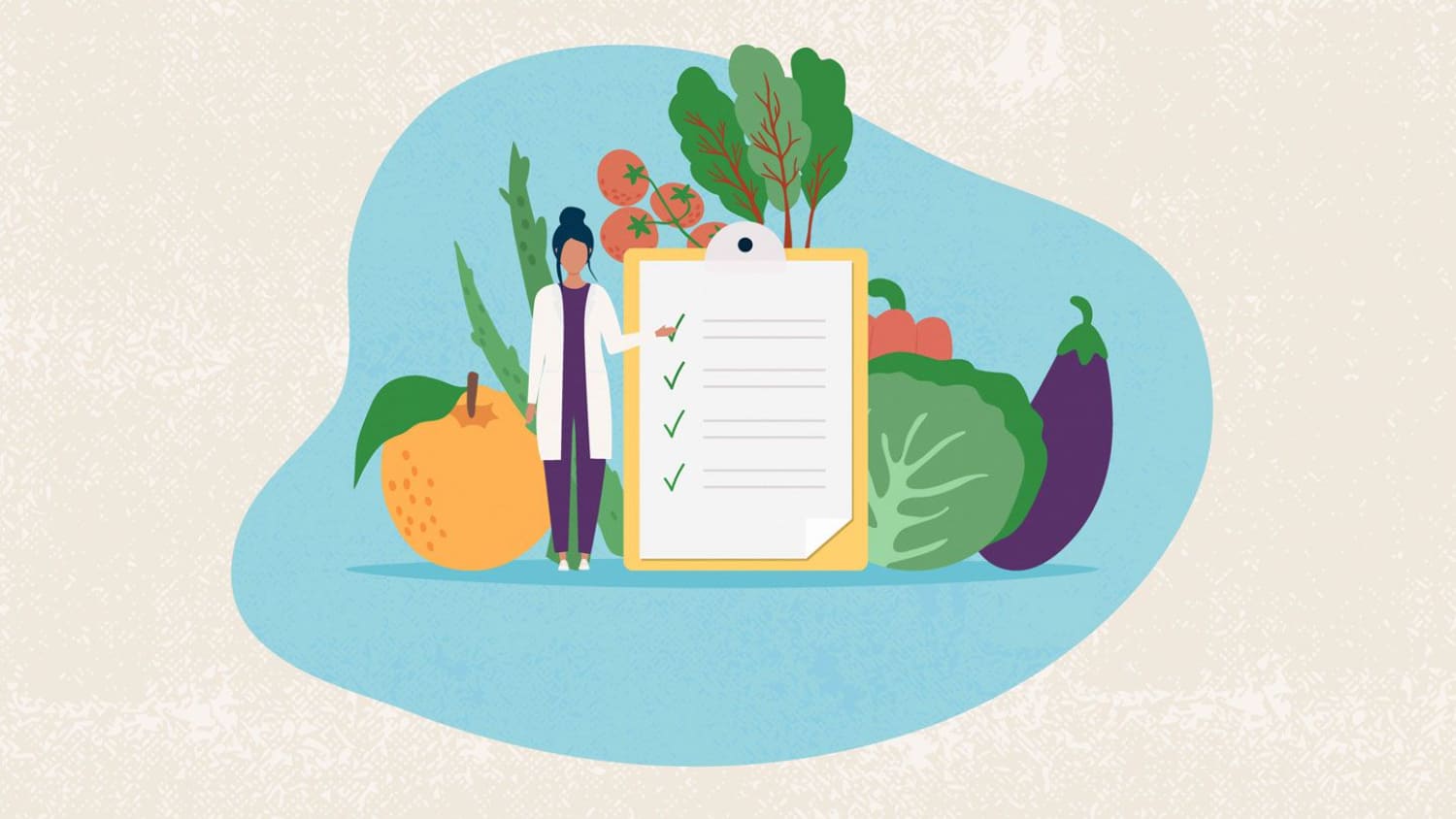In today’s information overload age, getting lost in health and nutrition jargon is easy. You’ve probably stumbled upon terms like “CDN Nutrition” and thought, “Yet another acronym to decode?”
A CDN in nutrition stands for “Certified Dietitian-Nutritionist.” It’s a professional credential signifying expertise in providing science-based nutritional guidance and counseling.
But here’s the catch: you need help understanding this term to make the best nutritional choices. It’s like having a secret recipe but missing that one key ingredient. The good news? We’re about to unveil this mystery, so you’re no longer in the dark.
See Also: What Are the 7 Elements of Nutrition? A Complete Overview
Contents
Understanding the Basics
“What is CDN nutrition?” is a question many budding health enthusiasts ask themselves. Navigating the world of nutrition can sometimes feel like deciphering a secret code. With so many acronyms and terms, it’s easy to get overwhelmed. But fear not! Let’s dive deep and unravel the mystery of one such term: CDN credential.
What is a CDN in the context of nutrition?
A CDN, or Certified Dietitian-Nutritionist, isn’t just another fancy title. It’s a testament to a professional’s dedication and expertise in nutrition. Think of it as a seal of approval, indicating that the person has undergone rigorous training and has the knowledge to guide others on their nutritional journey.
The Significance Of Certifications In The Nutrition Field
In an era where anyone can claim to be a “nutrition guru” after a quick Google search, certifications stand out as beacons of trustworthiness. They’re not just pieces of paper but symbols of commitment to the craft. Certifications like the CDN ensure that you’re getting advice from someone who’s been through the grind, learned the science, and truly understands the nuances of nutrition. So, the next time you seek guidance, check for these credentials. It’s a small step that can make a big difference in your health journey.
Remember, finding authenticity anchors is essential in the vast ocean of nutritional advice. Certifications, especially the CDN, serve as reliable anchors.
See Also: Sinful Nutrition: Where Every Veggie Has a Dark Side
Difference Between a Registered Dietitian and a Nutritionist
The “RD CDN meaning” often puzzles individuals venturing into the world of nutrition. Have you ever found yourself scratching your head, wondering if there’s any difference between a CDN dietitian and a general Nutritionist? You’re not alone. These titles, often used interchangeably, can be a source of confusion. But here’s the kicker: they’re different. Let’s break it down.
Credentials granted by the Academy of Nutrition and Dietetics
The Academy of Nutrition and Dietetics, a powerhouse in the world of nutrition, bestows the title of “Registered Dietitian” (RD) or “Registered Dietitian Nutritionist” (RDN) to those who’ve not only completed a bachelor’s degree but also undergone a specific and accredited nutrition curriculum. On top of this, they’ve tackled a rigorous internship and passed a national exam. It’s like a badge of honor, signaling a deep dive into the world of nutrition science.
The role and responsibilities of an RD/RDN
Now, let’s talk about the superheroes behind those credentials. An RD or RDN is more than just a title; it’s a responsibility. These professionals are equipped to assess, diagnose, and treat nutritional problems. They craft personalized nutrition strategies backed by science to help individuals achieve their health goals. Whether managing chronic diseases, improving sports performance, or guiding someone toward a healthier lifestyle, an RD/RDN is your go-to expert. They’re the bridge between the complex world of nutrition science and practical, everyday eating habits.
In contrast, while a Nutritionist might have a wealth of knowledge, they need to have the formal training or the standardized credentials that an RD/RDN boasts. It’s like comparing a self-taught musician to one who’s been classically trained. Both have value, but their paths and expertise can differ significantly.
See Also: How To Start a Nutrition Tea Business: A Step-By-Step Guide
State-by-State Licensing for Nutritionists
Ah, the United States—a melting pot of cultures, cuisines, and… nutritionist licensing regulations? Yep, you read that right. Just as each state has its flair, it has its own rules for licensing nutritionists. Let’s embark on a quick cross-country tour of these regulations.
How licensing varies across states
Imagine you’re on a road trip. As you hop from one state to another, you’ll notice that the licensing landscape for nutritionists changes, sometimes subtly, sometimes dramatically. Some states might have stringent requirements, demanding specific educational qualifications and supervised practice hours. Others might be more lenient, allowing individuals to practice with fewer credentials. And then some states might not regulate the title “nutritionist” at all, making it a Wild West.
Importance of checking with the appropriate regulatory body
Now, here’s where things get crucial. Given this patchwork of regulations, it’s paramount to check with the state’s regulatory body before practicing or seeking advice from a nutritionist. Why? Because it ensures that you’re either receiving or providing services that meet the state’s standards. It’s like having a GPS for your nutrition journey, guiding you safely and accurately.
In conclusion, while the U.S. offers a diverse tapestry of licensing regulations, one thing remains consistent: the importance of due diligence. Whether you’re a budding nutritionist or seeking guidance, always check the state’s rules. It’s a small step that paves the way for a smoother, more informed journey.
See Also: How to Make Nutrition Drinks at Home: Simple Recipes
Career Opportunities and Advancements
Dive into the world of nutrition, and you’ll quickly realize it’s not just about counting calories or recommending diets. It’s a vast, dynamic field brimming with opportunities. Whether you’re a newbie passionate about health or a seasoned professional looking to climb the ladder, the nutrition realm has something for everyone. Let’s explore.
Jobs and roles available for nutritionists
Picture this: a bustling hospital where a Clinical Nutritionist crafts patient meal plans. In this sports training center, a Sports Nutritionist fine-tunes athletes’ diets or a corporate office where a Wellness Nutritionist designs employee health programs. The possibilities are endless. From Pediatric Nutritionists helping kids grow strong to Gerontological Nutritionists ensuring our elders age gracefully, there’s a niche for every interest.
The potential for career growth with advanced degrees and certifications
Here’s where things get even more exciting. The world of nutrition isn’t static; it’s ever-evolving. And with this evolution comes the chance for growth. Advanced degrees can open doors to roles like Nutrition Researchers or University Professors. Certifications, on the other hand, can be your golden ticket to specialized fields, be it Oncology Nutrition or Renal Nutrition. The sky’s the limit!
In essence, a career in nutrition is like a multi-course meal. Start with a foundational role, add a sprinkle of continuous learning, a dash of passion, and voilà! You’re on your way to a fulfilling, impactful career that nourishes you and the countless lives you touch.
Salary and Compensation Trends for CDN Nutritionists
In the ever-evolving health and wellness landscape, CDN Nutritionists are pivotal players. But what does this mean in terms of compensation? Let’s delve into the numbers and trends shaping the financial side of this profession.
The average salary for a CDN Nutritionist can vary widely based on factors like location, experience, and specialization. While some might start with a modest compensation package, seasoned professionals with niche expertise can command higher salaries. Factors like continuous education, additional certifications, and geographic demand can significantly influence earning potential. It’s also worth noting that as the importance of nutrition in overall health gains more recognition, the value (and consequently, the compensation) of CDN Nutritionists is on an upward trajectory.
See Also: How to Become a Nutrition Response Testing Practitioner: A Detailed Guide
FAQs
What does CDN stand for in nutrition?
CDN stands for ‘Certified Dietitian-Nutritionist.’ It's a professional credential indicating expertise in providing science-based nutritional guidance.
Is a CDN the same as an RD?
No, while both are credentials in the nutrition field, an RD (Registered Dietitian) undergoes specific training and exams set by the Academy of Nutrition and Dietetics. A CDN, on the other hand, is state-specific and may have different requirements.
Why is state licensing important for nutritionists?
State licensing ensures that nutritionists meet specific educational and professional standards, ensuring quality and trustworthiness in their services.
Can a CDN work in any state?
Not necessarily. Licensing and certification requirements can vary from state to state. Before practicing, checking with the respective state's regulatory body is essential.
How does a CDN certification benefit my career in nutrition?
A CDN certification showcases your expertise and commitment to the field, potentially leading to higher earning opportunities and trust from clients and employers.
Conclusion
The world of nutrition, with its myriad terms and acronyms, can sometimes feel like a maze. But understanding the significance of CDN in this realm is akin to finding a compass. It’s not just about the title; it’s about the expertise, dedication, and impact associated with it. Pursuing certifications like CDN can be a game-changer for those already in the field or considering diving into it. It’s a commitment to excellence, a promise of quality, and a step towards a brighter, healthier future for all. So, gear up, embrace the journey, and let the world of nutrition unfold its wonders before you.
See Also: How Nutrition Works: A Beginner’s Guide to Understanding









